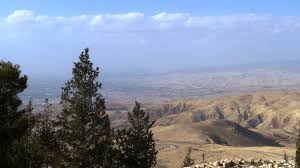
For the Israelites, the land signified God’s promise. So much so that they regularly referred to it as the “Promised Land.” The land, more than anything else, symbolized God with them and also his blessings.

When God first made humans he placed them in a location, the garden of Eden. When sin entered, they were sent out of the land and symbolically out of God’s presence. When the people were released from slavery, it had not been God’s idea for them to wander in the desert for all those years. His plan had been to deliver them from slavery to the land he had promised Abraham years before. For people in the Ancient Near East, deities were connected with a location and the Israelites would have viewed Yahweh in the same way. Much like the garden, when the Israelites were obeying, they remained in the land, but after continued disobedience, God allowed them to be exiled.

God used the concept of land to illustrate and teach many things to the Israelites. He wanted them to fully trust in him. He wanted them to know that he would fully provide for them. The people fully expected a land of abundance, flowing with date honey and milk. God even allowed the people to struggle to claim the land so that their faith in him would be strengthened.

Even when Jesus came, the Jewish people still viewed God through a lens of place. They were looking for a time when God would establish his reign on earth, centered at the temple in Jerusalem. God has other plans, but these still involve his promises to us today and the ultimate renewal of all the earth, not just Israel.

Believers today still “dwell” with God. The same promises that he gave his people are ours today. He is still a God of abundance and blessing. Even if we cannot understand the significance of physical land, we can take comfort that our dwelling place is with God and as Joshua 1:9 ends with, “the Lord your God is with you wherever you go.”
Leave a Reply